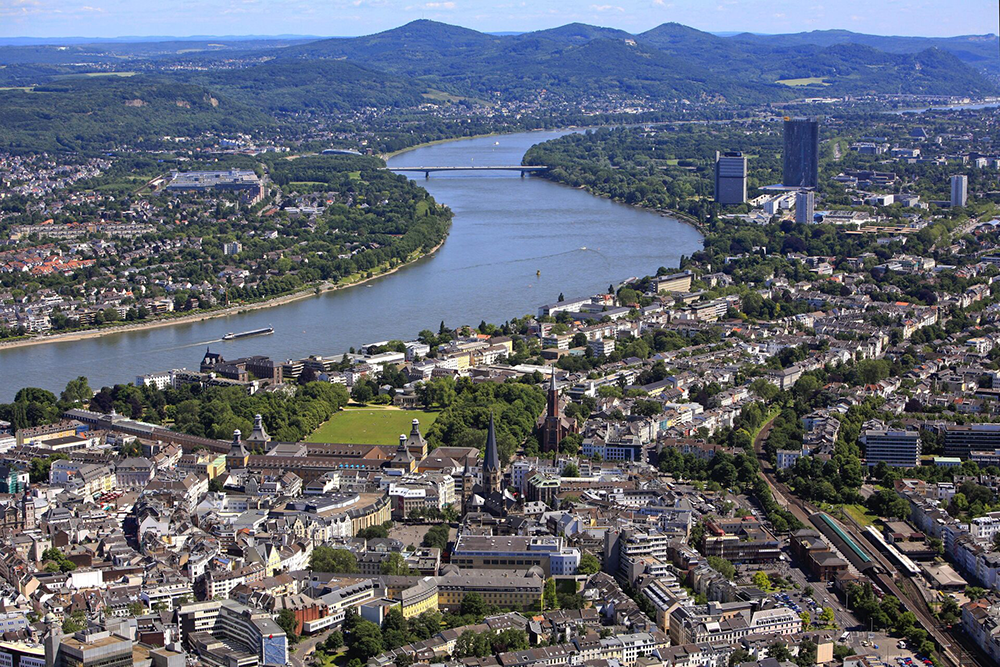With a population of around 330,000, Bonn is a medium-sized city and combines the amenities of such a city with proximity to nature. Bonn is situated on the Rhine River and is the second political center of the Federal Republic of Germany. It is the German city of the United Nations and the birthplace of Ludwig van Beethoven. Here, the Rhenish way of life meets art and culture, science and research meet trade, crafts, and industry. Tradition meets progress. The Rhenish Carnival, the Beethovenfest and Pützchens Jahrmarkt are celebrated here.
Bonn, a region for science and research
Embedded in the triangle of the "ABC region" marked by the cities of Aachen, Bonn, and Cologne (Köln), which is considered the densest research and technology landscape in Europe, Bonn has earned an international reputation as a center of science. The starting point is the University of Bonn, founded in 1818, with its approximately 38,000 students today. In July 2019, it was awarded the status of a university of excellence. In addition, institutes, research facilities, and universities have developed into the Bonn science region over the past two decades. Together with the Max Planck Institute for Neurobiology of Behavior – caesar (MPINB) that conducts research in the field of neuroethology, and LIFE & BRAIN, a research center for applied biomedicine, and the German Center for Neurodegenerative Diseases Research (DZNE), Bonn forms a focal point in the field of neuroscience. Bonn is also home to a number of science's leading intermediary and funding organizations with international impact.
Cost of living in Bonn
You can compare the cost of living in Bonn with other cities here.
Finding an apartment
On the following portals, you can search for shared living spaces ("WG-Angebote”) or one-room offers (“Wohnungsangebote”), please select “Bonn” as your location.
The following glossaries may be useful to better understand the offers:
- https://www.bonn.de/microsite/en/services/housing/accomodation-glossary.php
- https://www.h-brs.de/en/sv/adsps-glossary
Please also consult: https://www.uni-bonn.de/en/university/university-life/living-in-bonn
When calculating the future rent, you should be aware of the difference between "Warmmiete" and "Kaltmiete".
The "Kaltmiete" is only the basic rent that the landlord charges for the apartment. In addition, the "Warmmiete" includes the costs for heating, water and electricity.
Usually, you will also have to pay a deposit of 3 months' rent ("Kaltmiete") before you move in.
Interesting links
- www.howtogermany.com
A useful website that tells you everything you need to know about living and working in Germany as a foreigner. - www.numbeo.com/cost-of-living/in/Bonn
A great website to get an overview of prices and costs in Bonn. -
www.toytowngermany.com
An information resource, a meeting point, and a communication platform for English speakers throughout Germany - www.general-anzeiger-bonn.de
An English-language website of Bonn´s local newspaper - www.spiegel.de/international
An English-language website of the popular German magazine - www.expatica.com
Provider of English daily news, features and practical information on living abroad in English for the international community in Germany - www.dw.com
German national news by Germany’s international broadcaster 'Deutsche Welle'
